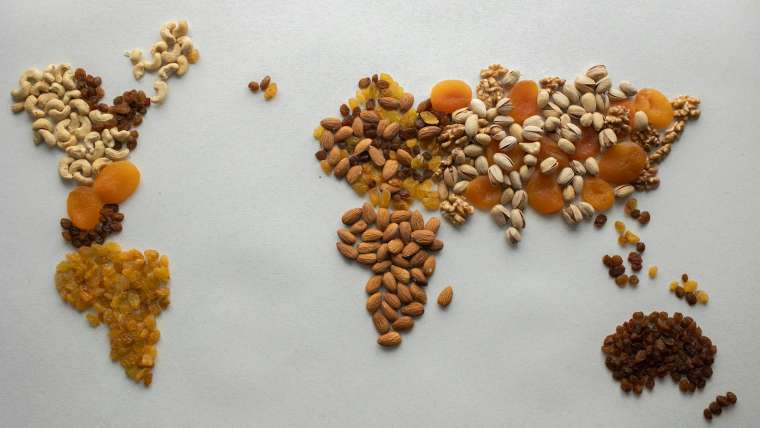Discover the secrets to preventing and treating kidney stones in this comprehensive guide that will change your health for good.
Table of Contents
Having kidney stones can be a painful and frustrating experience. They are crystalized minerals that form in the kidney and can cause intense pain when passing through the urinary tract. In this comprehensive guide, we will cover everything you need to know about kidney stones – from understanding the causes and symptoms to exploring prevention strategies and treatment options.
Kidney Stone Basics
Before diving into prevention and treatment, it’s essential to understand the basics of kidney stones. Kidney stones are solid deposits of minerals and salts that accumulate in the kidney. They can vary in size and composition, with some being as small as a grain of sand and others as large as a marble.
The most common types of kidney stones include calcium stones, uric acid stones, struvite stones, and cystine stones. Each type has distinct characteristics and may require different treatment approaches.
Causes and Symptoms
Kidney stones can develop when there is an imbalance in the substances that make up urine, such as calcium, oxalate, and uric acid. Dehydration, dietary factors, family history, and certain medical conditions can increase the risk of developing kidney stones.
Common symptoms of kidney stones include severe pain in the back, side, abdomen, or groin, as well as nausea, vomiting, and blood in the urine. It’s crucial to seek medical attention if you experience these symptoms to receive an accurate diagnosis and appropriate treatment.
Prevention Strategies
Preventing kidney stones involves making changes to your diet and lifestyle to reduce the risk of stone formation. Staying hydrated is key, as it helps prevent minerals from concentrating in the urine and forming stones. Drinking plenty of water throughout the day can help flush out minerals and keep the kidneys healthy.
Avoiding foods high in oxalate, such as spinach, nuts, and chocolate, can also help reduce the risk of calcium oxalate stones. Maintaining a healthy weight, limiting sodium intake, and consuming adequate amounts of calcium and fiber are additional strategies for preventing kidney stones.
Treatment Options
If you develop kidney stones, there are several treatment options available depending on the size and type of stones. In some cases, small stones may pass on their own with increased fluid intake and pain management medications. For larger stones or those causing severe symptoms, medical intervention may be necessary.
| Stage | Symptoms | Treatment |
|---|---|---|
| 1. Formation of Kidney Stones | Severe pain in the back, side or lower abdomen, nausea, vomiting, and blood in urine | Drink plenty of water, medications to help pass the stone, surgery to remove larger stones |
| 2. Prevention of Kidney Stones | Frequent urination, increased thirst, and cloudy or foul-smelling urine | Stay hydrated, limit sodium intake, avoid high-oxalate foods, and take prescribed medications |
| 3. Treatment of Kidney Stones | Sharp pain in the back, side, abdomen, groin, or genitals, pink or red urine, and persistent need to urinate | Extracorporeal shock wave lithotripsy, ureteroscopy, percutaneous nephrolithotomy |
Medical treatments for kidney stones include shock wave lithotripsy, ureteroscopy, and percutaneous nephrolithotomy. These procedures involve breaking up and removing stones from the urinary tract to alleviate pain and prevent complications.
Conclusion
In conclusion, kidney stones are a common and painful condition that can be managed with proper prevention and treatment. By understanding the causes, symptoms, prevention strategies, and treatment options, you can take control of your kidney health and reduce the risk of developing stones. Remember to stay hydrated, follow a healthy diet, and seek medical attention if you experience symptoms of kidney stones. With the right approach, you can minimize the impact of kidney stones on your health and well-being.
FAQs
Can kidney stones be prevented?
Yes, kidney stones can be prevented by staying hydrated, following a healthy diet, limiting sodium intake, and avoiding high-oxalate foods.
What are the common symptoms of kidney stones?
Common symptoms of kidney stones include severe pain in the back, side, abdomen, or groin, nausea, vomiting, and blood in the urine.
What treatment options are available for kidney stones?
Treatment options for kidney stones include shock wave lithotripsy, ureteroscopy, and percutaneous nephrolithotomy, depending on the size and type of stones.
How can I reduce the risk of developing kidney stones?
To reduce the risk of developing kidney stones, stay hydrated, maintain a healthy weight, limit sodium intake, and avoid high-oxalate foods.





